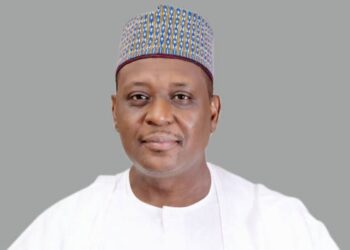Nigeria’s Manufacturing sector is expected to witness further contraction by the end of third quarter and end of 2020, as the manufacturing Purchasing Manager’s Index (PMI) contracted consistently in the last four months.
According to the latest data released by the Central Bank of Nigeria, manufacturing PMI stood at 48.5 index points, against 44.9 points recorded in July, 2020.
Back story: On Wednesday, Nairametrics reported that out of the 14 subsectors surveyed, 6 subsectors reported expansion (above 50% threshold) in the review month in the following order:
* Non-metallic mineral products
* Cement
* Plastics & rubber products
* Transportation Equipment
* Chemical & pharmaceutical products
* Textile, apparel, leather & footwear.
READ: Startimes, DStv, Others adjust prices as Nigerian businesses battle tough economic conditions
The remaining 8 subsectors reported contraction in the following order:
* Printing & related support activities
* Electrical equipment
* Petroleum & coal products
* Primary metal
* Furniture & related products
* Paper products
* Food, beverage & tobacco products
* Fabricated metal products
As the manufacturing index recorded a decline, production level, new orders, employment level, and raw material inventories all recorded further decline compared to their July 2020 figures.
READ: A Sterling performance? Not quite, but commendable
PMI for non-manufacturing
Meanwhile, the composite PMI for the non-manufacturing sector stood at stood at 44.7 points in August 2020, indicating contraction in non-manufacturing activities for the fifth consecutive months.
Out of the 17 surveyed sub-sectors, only the utilities subsector reported same level, while the remaining 16 subsectors reported contracted in the following order:
* Repair,
* Maintenance/washing of motor vehicles;
* Real estate rental & leasing; professional,
* Scientific, & technical services;
* Management of companies;
* Electricity, gas, steam & air conditioning supply;
* Educational services;
* Health care & social assistance;
* Finance & insurance; construction;
* Arts, entertainment & recreation;
*Transportation & warehousing;
* Accommodation & food services;
* Water supply, sewage & waste management;
* Wholesale/retail trade; agriculture and Information & communication.
READ: Is Forex trading legal in Nigeria?
What this means
PMI is a survey that is conducted by the Statistics Department of the Central Bank of Nigeria to show the changes in the level of business activities in the current month compared with the preceding month.
For each of the indicators measured, this report shows the diffusion index of the responses, which is computed as the percentage of responded with positive change, plus half of the percentage of those reporting no change; except for supplier delivery time which is computed as the percentage of responses with negative change plus half of the percentage of those reporting no change.
The latest PMI figure below 50 for the fourth consecutive months implies that Nigeria may post a bigger than expected contraction in the third and fourth quarters of 2020.
Managing Partner, FA Consult, an audit firm and a chartered accountant, Peter Adebayo, said:
“The economy would witness further decline in the second half of the year, even till first quarter of 2021. I expect the scarcity of dollar, depressed oil prices and limited fiscal support to put pressure on the economy.”
In all, as key sectors continue to suffer contraction, unemployment may surge in the economy.
















.gif)






